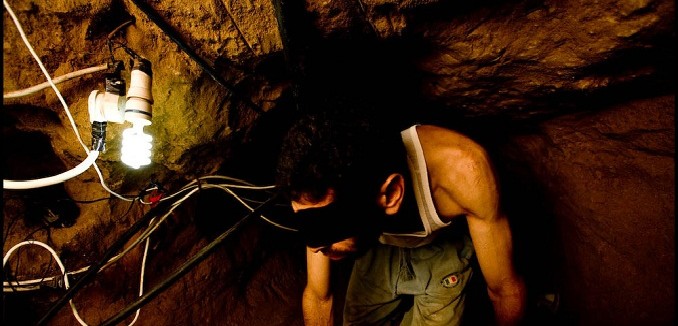Nine months ago the New York Times reported that Hamas was gaining popularity.
Some of that popularity was the result of Hamas boasting that it had emerged victorious from Israel’s Operation Pillar of Defense, which Jerusalem launched after several weeks in which Hamas had steadily escalated the amount and sophistication of its rocket fire against Israel. The untenability of those claims made Hamas’s popularity precarious, and several dynamics since then have contributed to a percipitous decline in the group’s popularity.
Perhaps most prominently, relations with Egypt have just flat out collapsed. The diplomatic and economic fallout from the Muslim Brotherhood’s loss of power in Cairo has been catastrophic for Hamas. Washington Institute fellow Ehud Ya’ari gives the overview:
For example, top Brotherhood figure Khairat al-Shater — a millionaire now imprisoned by the military — made significant financial donations to the Gaza government, while Morsi allowed Hamas to open offices in Cairo and permitted several of its leaders (e.g., Mousa Abu Marzouk) to establish residency there. Egypt also opened its Rafah border terminal in a much more generous manner than ever before. More broadly, Hamas saw the Brotherhood-led Egypt as a guarantor of its hold on Gaza, a deterrent against Israel, an ally against the Palestinian Authority in the West Bank, and a potential new sponsor in its bid to join the regional rise of political Islam.
Egypt’s June 30 revolution brought a quick reversal, however. The new authorities in Cairo now treat Hamas as a hostile adversary, accusing it of undermining Egypt’s stability and fomenting rapid security deterioration in the Sinai Peninsula. The Egyptian military has practically sealed the border with Gaza, limiting the Rafah crossing to intermittent, minimal capacity and effectively closing the hundreds of smuggling tunnels through which Hamas acquired many of Gaza’s necessary goods (e.g., cars, cement, fuel). And for the first time since Hamas took control of the strip, Egyptian helicopters are gathering intelligence over Gaza’s southern sector after receiving a quiet nod from Israel.
The Egyptian military has long blamed Hamas for violence in the Sinai Peninsula specifically, and for unrest in the country stretching back to the 2011 Arab Spring. According to Egyptian military sources, violent extremists continue to stream into the Sinai from the Gaza Strip: over 200 have been arrested recently. Meanwhile 343 smuggling tunnels running between the Hamas-controlled Gaza Strip and the Sinai Peninsula – which the army blames for the movement of hose extremists – have been shut down.
Hamas’s declining popularity has come with a decline in its domestic control over the Gaza Strip. The terror group has scrambled to harshly crack down on a nascent protest movement. The Tamarod movement takes its name from the Egyptian movement that led to the ouster of Morsi. It’s not sacked with liberals, exactly – it urges confrontation with Israel – but it is nonetheless opposed to Hamas.
[Photo: Zoriah / Flickr]




